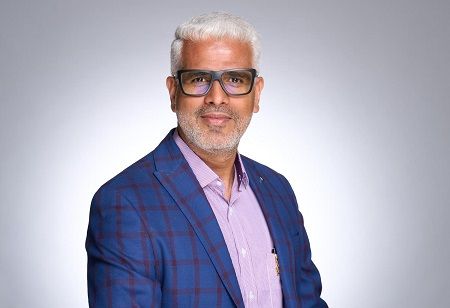
Sanjay engaged in a conversation with Asia Business Outlook magazine to answer queries on how the clinical research sector is undergoing transformation in India. He is the MD and Country Head for Parexel India and moved from the US to India four years ago. He is also the Global SPO Head for the clinical supplies and logistics business unit and global safety services and pharmacovigilance. He is managing 6000+ people here in India and 3000+ globally and is part of the executive management team reporting to the CEO.
India’s healthcare infrastructure has been rapidly expanding, alongside a skilled workforce. How do you believe these developments are positioning India to potentially become a global hub for clinical research, and what challenges do you foresee in this transformation?
There are a couple of aspects we need to take into consideration in this regard. India is at a fantastic cusp in terms of being a clinical hub from a geopolitical standpoint. If you look at it from an infrastructure development perspective, the Indian healthcare industry has undergone a tremendous transformation. It is because of the substantial investments happening in the hospital sector, real estate, and also by the union healthcare ministry. New educational institutes have emerged and investments in medical colleges are taking place all across the country. All of this is being executed to bring about development in the healthcare infrastructure. If you take a look at the geopolitical situation with the impact that is taking place especially because of the Russia-Ukraine war situation and increasing patient population all across the world, it provides a large amount of opportunities for clinical trials. That is also a reason why India is growing as a global hub for clinical research. It is growing into an attractive destination for global pharmaceutical companies and even CROs. A lot of industry-academia partnerships are also taking place in terms of conducting research on new molecules. India has overcome all the historical challenges and has become a hub of innovative treatment. There has also been standardization in data transparency and growth of initiatives in preventive healthcare as well.
How does India’s rich cultural and genetic diversity positively influence the landscape of clinical research, especially regarding therapeutic development?
India has always been rich in terms of a diverse patient population. When one says that 28 states are like 28 different countries and when one looks at understanding the variations in diseases, it can be seen that the socio-political structure is highly imbibed in the diagnosis and treatment process for diseases and the progression and presentation of the complete healthcare sector. The study of this diverse patient population actually helps in understanding how a kind of medication or therapeutic intervention can act differently for different kinds of cultural backgrounds. This is one of the unique aspects of having India as part of the process. There is also a wide range of participants because of the country's huge population of 1.2 billion and a broader spectrum of genotypes and phenotypes which is crucial for personalized medication. There are various new concepts of cell and gene therapy coming up which is giving wider efficacy for manufactured formulations. Last but not least, if one looks from a drug safety perspective, every human being has a diverse reaction to different vaccines. Genetic variations can allow us to understand individuals and how they react to different kinds of medication.
How has the balance between cost-effectiveness and maintaining high standards of clinical research influenced India's trajectory as a global hub for conducting clinical trials, especially in comparison to Western countries?
India aspires to be a global hub in clinical trials but there has to be a balance between cost-effectiveness and maintaining the highest resource standards. India has become an industry leader from a generics manufacturing perspective but the cost-effectiveness of clinical trials has a significant impact in terms of its relativity in the western countries. When one invests in an investigator site in India, the cost of it reduces by 30-60 percent. However, the value proposition for a clinical trial operation needs to be high because if one is taking the same patient population for conducting different kinds of medicine trials, it does not bring out the required effectiveness. When one is able to reduce the cost with good infrastructure and good development, one is actually able to influence the cost of the drug as well. The turnaround time for the manufacturing of the drug and reaching the market is much faster in India than in any of the western countries.
Given India's evolving landscape of data privacy regulations, how do you foresee these regulations impacting the future of clinical research practices, particularly in terms of ensuring patient confidentiality?
Every country needs to check with its data protection and privacy regulations and India has also come up with the Data Protection Act of 2023 which is still in progress and updates are being done to that. This act speaks about protecting people's privacy while establishing a framework on how the data can be shared without compromising the personal information of a particular patient. It is actually supplementing the sectorial regulations that exist in life sciences and healthcare because if you are conducting a clinical trial which can be anywhere in the world, it is fundamental to keep the patient identity protected.
We use cookies to ensure you get the best experience on our website. Read more...